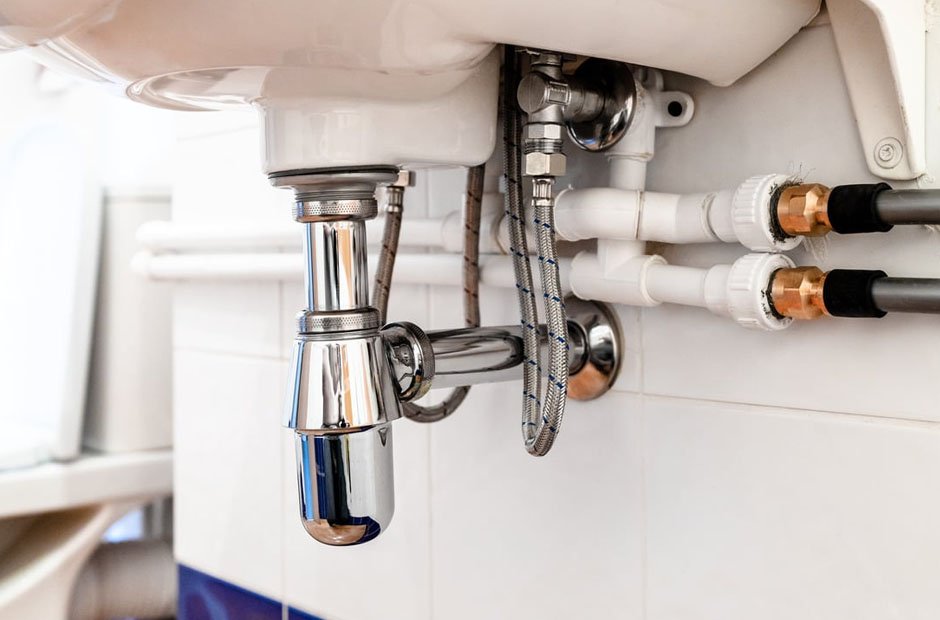Skip to the good bit
ToggleClogged drains affect many households and cause slow drainage, unpleasant smells, dirty water backups, and other issues. When you detect signs of a clogged drain, contact a drain cleaning professional to investigate the problem and determine a suitable solution, advises the GreaseCycle company. They have the tools and expertise to eliminate stubborn clogs and get your drain water flowing smoothly again. Here are six reasons for clogged drains and how a plumber can help:
1. Hair and Soap
When being brushed, hair strands can break and fall on the bathroom floor and in the sink. The hair may build up inside sink drains and mix with soap residue, creating a thick obstruction that hinders normal water flow. A drain cleaning expert uses specialized tools like augers to remove hair and soap blockage and restore proper drainage. They may also recommend drain covers to trap hair before it enters the drain.
2. Fats and Oils
Some people may pour their unusable fats and oils down their kitchen drains as a way of getting rid of them. Fats and oils are insoluble in water and solidify when exposed to cool temperatures. Small amounts accumulate into large amounts over time, and they combine with food substances to create clogs. Drain cleaning professionals have hydrojetting systems to eliminate solidified fats and oils from your pipes. Avoid pouring unusable oils and grease down your kitchen sink to reduce the risk of blockages.
3. Foreign Objects
Foreign objects can easily find their way into your plumbing system, often without you realizing it. Curious kids might push toys or other items down the drain just to see what happens. Adults can also accidentally drop small items, such as jewelry, nuts, bolts, or other objects, into the drain. These objects get lodged in the drain, preventing water from flowing freely. A drain cleaning professional may use a specialized camera to detect any foreign objects. They can then remove the items, dispose of them properly, clean the pipes, and verify your drains work as intended. If your drains do not have covers, you can install them to prevent small objects from getting inside the drain and potentially causing a blockage.
4. Tree Root Intrusion
If trees are planted on your property, their roots can find their way into your sewer line. Besides damaging your pipes, they hinder the flow of drain water. Your plumber will inspect your entire drain to determine if root intrusion is the cause of your slow drainage. They will then eliminate the roots to restore proper drainage. Since the invasive roots damage the pipes, your plumber may need to use trenchless pipe relining to restore functionality. Plumbers may recommend planting trees away from underground pipes to eliminate the risk of root invasion.
5. Wipes, Diapers, and Sanitary Pads
Wipes are often designed to be durable and can accumulate in pipes if flushed, creating a blockage. Disposable diapers are made with materials that are designed to absorb moisture and maintain their form. Similar to diapers, sanitary pads are designed to be highly absorbent and do not disintegrate efficiently in water. When these items are flushed, they can quickly block pipes and lead to severe clogs.
A drain cleaning professional will need to remove the item causing the clog and dispose of it properly. They may then use a hydrojetting system to pump pressurized water into your drains. This tool helps dislodge and remove residue stuck on the pipe walls. To prevent pipe blockage due to these items, educate everyone in the household about what should and shouldn’t be flushed down the toilet.
6. Mineral Buildup
If you live in an area with high mineral content, your pipes may be susceptible to frequent clogs. Minerals from hard water, including magnesium and calcium, can accumulate inside the pipes as time passes and hinder water flow. A professional plumber may use techniques like hydrojetting to effectively remove mineral deposits during a drain clearing.
Hire a Drain Cleaning Professional
If you notice signs of a drain clog, contact an experienced plumber to prevent further damage to your plumbing system. A drain cleaning expert has plungers, augers, hydro jets, inspection cameras, and other tools for effective and efficient clog removal. They will also recommend tips to prevent future blockages.







